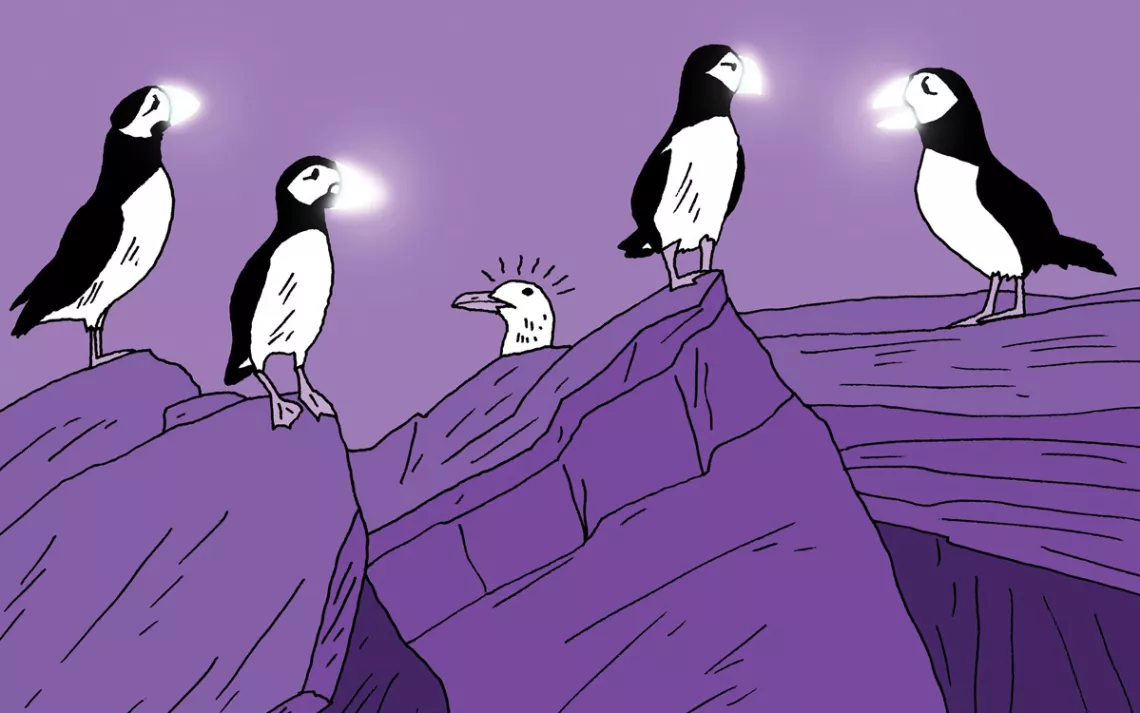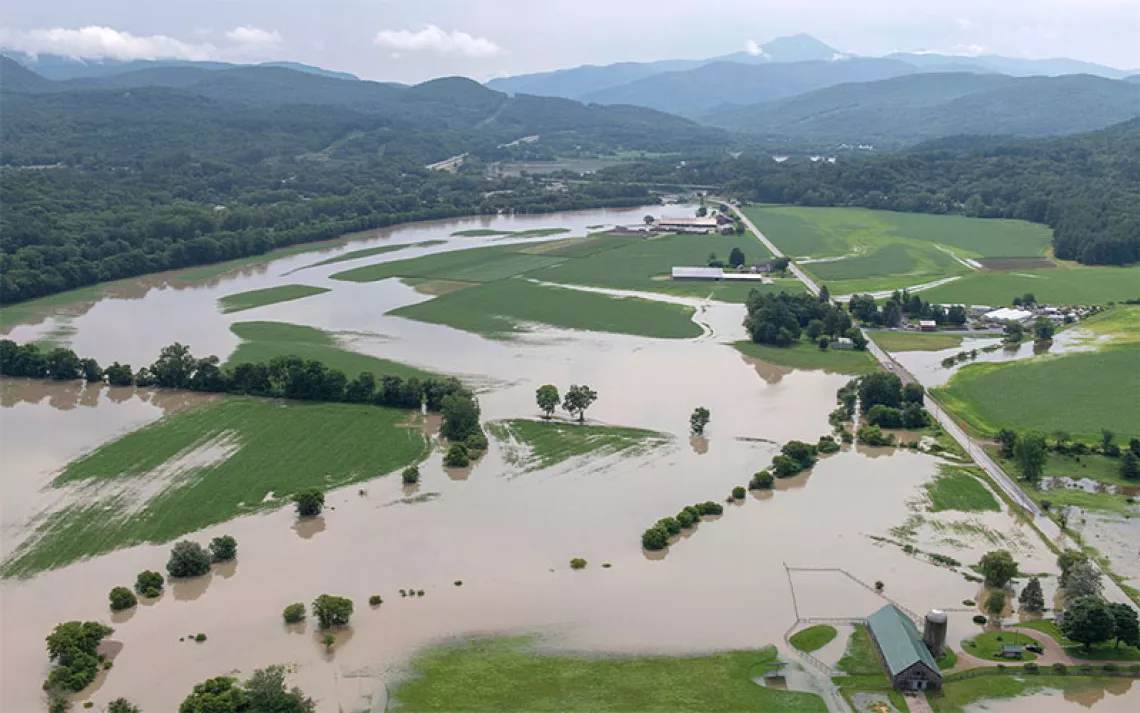All the Environmental News in Case You Missed It
Fluorescent puffins, jazz whales, and blaming air pollution for the ref's bad calls

The Gulf Stream and other Atlantic Ocean currents are declining in strength and are now at a record low.
After three years of holding flat, global emissions of greenhouse gases increased by 1.4 percent in 2017. In May, global CO2 concentrations reached 410 parts per million, the highest level in 15 million years.
New Zealand will stop granting new permits for deep-sea oil and gas drilling in order to move away from fossil fuels.
The longitudinal climate boundary dividing the humid East from the arid West in the United States, famously identified by explorer John Wesley Powell as running along the 100th meridian, is shifting east due to climate change. It is now closer to the 98th meridian.
Washington bans the farming of Atlantic salmon in state waters.
Air pollution leads to more bad calls by umpires.
Puffin beaks turn out to be fluorescent.

General Electric introduces the world's first 12-megawatt wind turbine, a supergiant offshore model that will stand nearly as tall as New York City's Chrysler Building.
The bowhead whales of Spitsbergen exhibit "extreme diversity" in their songs, which researchers liken to jazz.

Britain enacts one of the world's toughest ivory bans.
Wyoming will allow 22 grizzly bears to be killed by hunters this fall.
Starting in March 2016, Russian hackers infiltrated the U.S. electrical grid and had the ability to shut down power plants at will.
Worldwide demand for air conditioners, refrigerators, and other cooling devices is expected to nearly double by the middle of the century.

One in five Americans has participated in a political demonstration since the beginning of 2016.
This article appeared in the July/August 2018 edition with the headline "Up to Speed: Two Months, One Page."
 The Magazine of The Sierra Club
The Magazine of The Sierra Club



